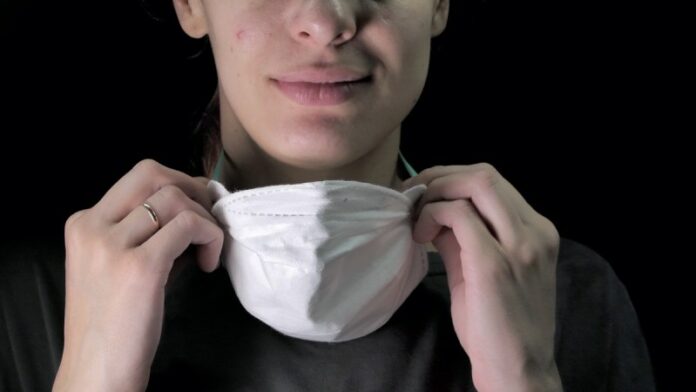Wearing masks has become a new norm during the COVID19 pandemic. Though mask has a protective role in limiting the transmission, it also has its downside!
Face masks have become a part and parcel of our lives since the start of the pandemic. With time, all sorts of fancy masks in different colours and style became available commercially. In other words, mask became a fashion accessory. Although it helped in limiting droplet transmission and hiding wrinkles, wearing masks worsened the underlying skin conditions.
Many mask wearers complained of an exacerbation of their acne or rosacea. The humid, warm, and moist environment under the mask seems to be a potential habitat for the yeast to proliferate.
Yeasts (Candida Albicans) can grow in the moist, warm, and humid. Skin creases are the usual sites of yeasts infections, besides the buccal cavity and vagina. Normally, our skin has organisms that are otherwise harmless. Under certain situations, these organisms may utilise the opportunity and cause an infection, hence called opportunistic infections. For examples, when the body’s immunity is weakened due to any illness, chronic disease like diabetes mellitus, or steroid use, these organisms have the potential to grow in number. Therefore, with an increase in number, they can cause an infection.
Similarly, yeasts are present on our body normally. However, with the masks, we provide them with an ideal environment to grow, reproduce and infect, hence the superficial fungal infection complaints.
Dr. Sapna Palep, the founder of Spring Street Dermatology in New York City, elaborated that masks per se are not causing infection, in fact wearing a mask for extended periods, especially in humid, warm summer, is merely creating a favourable environment for the fungi to grow. Therefore, conditions like eczema, acne, and rosacea have the tendency to worsen.
Lucy Chen, MD, a dermatologist at Riverchase Dermatology in Miami, said:
“Candida thrives in humid environments, much like the one created under your mask. While a face mask can’t be the sole cause of a skin infection, the combination of heat, humidity and a tight mask could worsen underlying conditions that prompt a fungal or bacterial infection.”
Then what should we do?
Should we not wear masks? Should we fear COVID19 or the fungi?
There is no hesitancy in saying that wearing masks is the priority given the circumstances. The best we can do to help ourselves is to select a breathable material/fabric for masks. When using reusable masks, it is highly imperative to maintain a good hygiene routine. In other words, washing masks regularly is indispensable in the management of mask-related skin conditions. Additionally, Dr Palep emphasized using a gentle detergent that is skin-friendly and not irritative.
The length of time an individual wears a mask impacts the likelihood of yeast/fungal infection. This is because, the longer the mask is on, the moister and warmer the environment becomes under the mask, hence increased chances of developing/exacerbating skin conditions.
Therefore, during these times, it is imperative to take good care of the skin, especially the one covered with the mask. Individuals should seek medical attention when any dermatological symptoms develop including pustules, rash, soreness, blisters, redness, and chaffing.
Moreover, yeast infections are easily treatable especially if diagnosed in time. Usually, there are no long-term complications. Although, wearing masks cannot be avoided at the moment, preventing the unwanted baggage of masks is preventable and treatable with a little extra caution.
Marina Peredo, MD, a board-certified dermatologist in New York said:
“If you’re wearing a mask, you’re also covering half your face. Don’t put makeup and lipstick on. It’s better to wear a mask over clean skin, apply or minimize what you’re using to your lower face.”




